Hey there! If you're looking to modify an existing reseller contract, crafting a well-structured amendment proposal is key to ensuring all parties are on the same page. In this article, we'll walk you through the essential elements to include, so you can communicate your changes clearly and effectively. Whether you're adjusting terms, adding new products, or changing pricing structures, understanding the language of contracts can make a big difference. Ready to dive into the details? Keep reading!
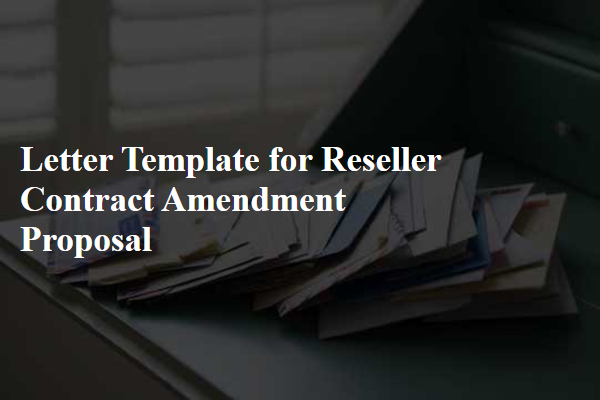
Introduction and Purpose
The introduction of the reseller contract amendment proposal outlines the essential aim of enhancing the existing agreement (originally established in January 2022) between XYZ Company and ABC Reseller. This initiative seeks to address evolving market dynamics, ensuring both parties' interests remain aligned as the technology landscape evolves. A focus will be on modifying key terms related to product pricing strategies, sales territories, and promotional incentives. The goal is to foster a collaborative environment that encourages growth while adapting to recent consumer behavior shifts observed in regions like North America and Europe. This proposal serves as a foundation for an ongoing partnership, promoting transparency and mutual benefit in the reseller relationship.
Amendment Details
Reseller contracts may require amendments to address changes in business needs or partner relationships. The proposed amendment should clearly outline specific modifications, including revised commission rates, updated territories, and new product lines. Reseller entities must pay attention to amendments impacting sales strategies, such as altered performance benchmarks or reporting requirements. Any changes to dispute resolution terms or contract duration must be specified to avoid future misunderstandings. Compliance with relevant laws and regulations, like the Consumer Rights Act of 2015 in the UK, is essential to uphold contractual integrity. Detailed documentation of the amendment process ensures clarity for all stakeholders involved.
Effective Date
A reseller contract amendment proposal regarding the effective date is crucial for establishing a clear timeline for the revised terms of agreement between the involved parties. The effective date typically signifies when the updated terms will come into force, impacting the roles of stakeholders such as suppliers, distributors, manufacturers, or other business entities. An effectively drafted proposal should address essential aspects such as specific dates, the rationale behind the amendment, and potential implications on pricing, delivery schedules, or obligations it may impose on either party. Details regarding previous agreements, such as the original effective date, also play a critical role in providing context for the amendment. Clear communication about the changes ensures both parties understand the new timeline, which can influence cash flow, inventory management, and overall business operations.
Signature and Agreement
A reseller contract amendment proposal outlines changes to an existing agreement between two parties, often involving adjustments to terms, pricing, or responsibilities. This document typically includes details such as the original contract date, specific clause numbers affected, and the reasons for the amendment. Additionally, relevant parties are required to provide their signatures to indicate acceptance of the proposed changes, thereby formalizing the new terms of the agreement. Providing the date of the signature and the identity of the parties involved, such as company names and representatives, is essential for clarity and legal compliance.
Contact Information
A reseller contract amendment proposal includes essential contact information for all parties involved in the agreement. The primary contact may be the legal representative of the business, such as a Chief Executive Officer (CEO) or Contract Manager, located at the company headquarters. This location may include a specific address, city, state, and postal code. Additionally, the contact information must include phone numbers, such as a direct line for easy communication, and professional email addresses for formal correspondence. Any alternate contacts, such as a Sales Manager or Legal Counsel, should also be listed with their respective contact details to ensure smooth communication throughout the amendment process.

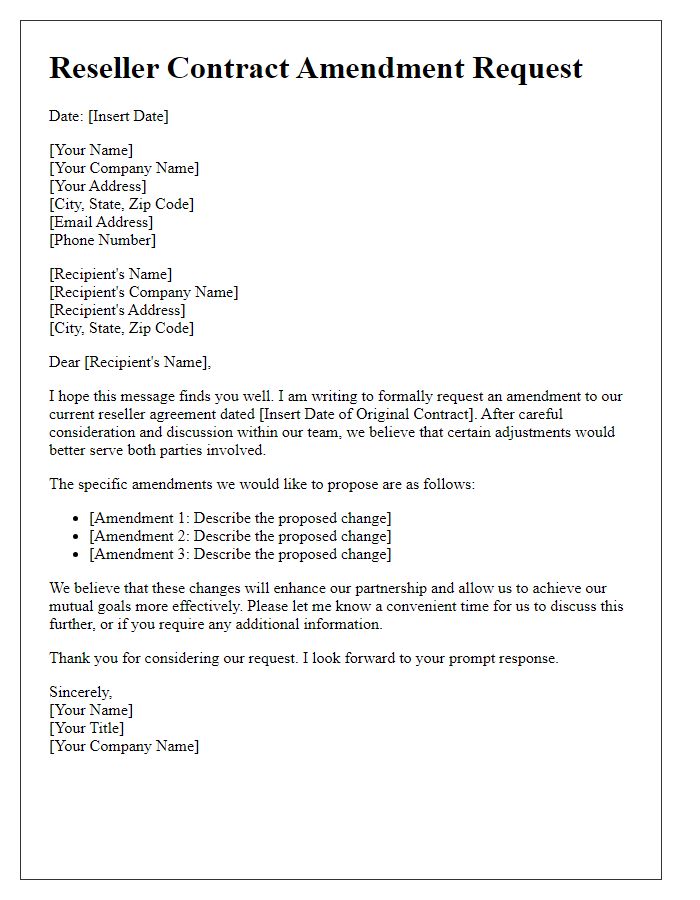
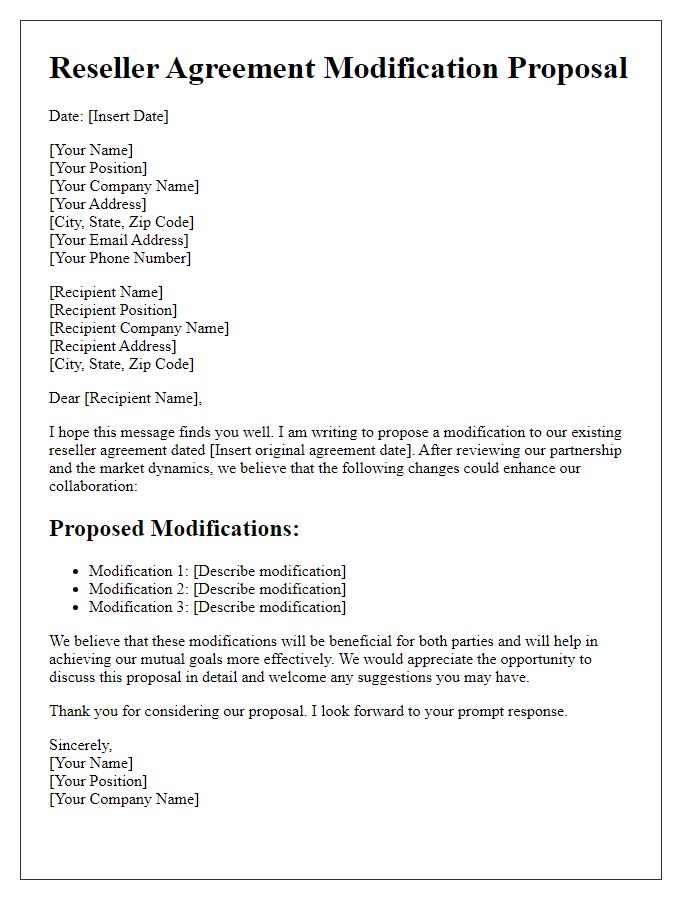
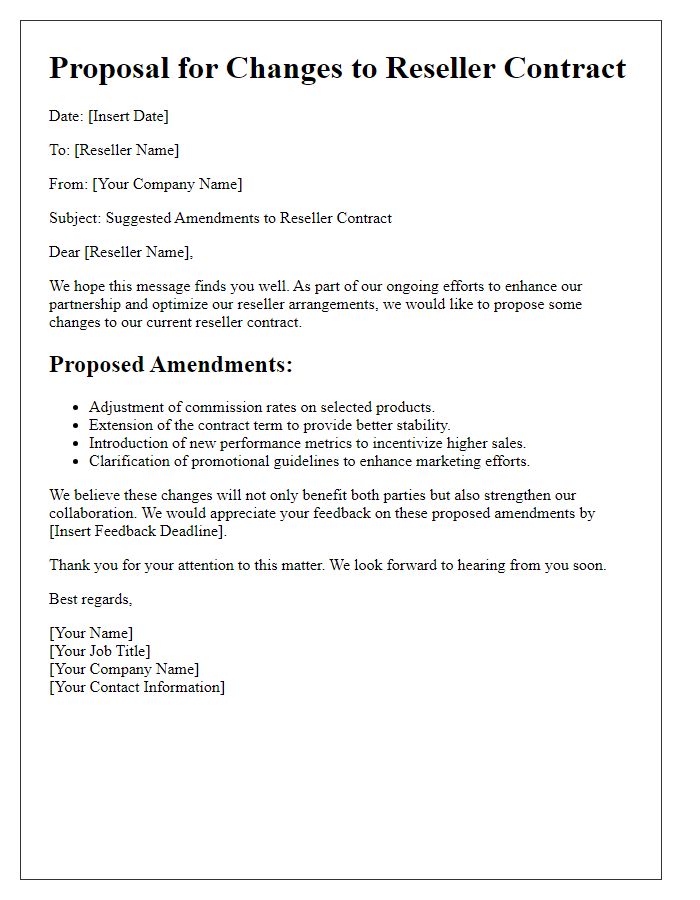
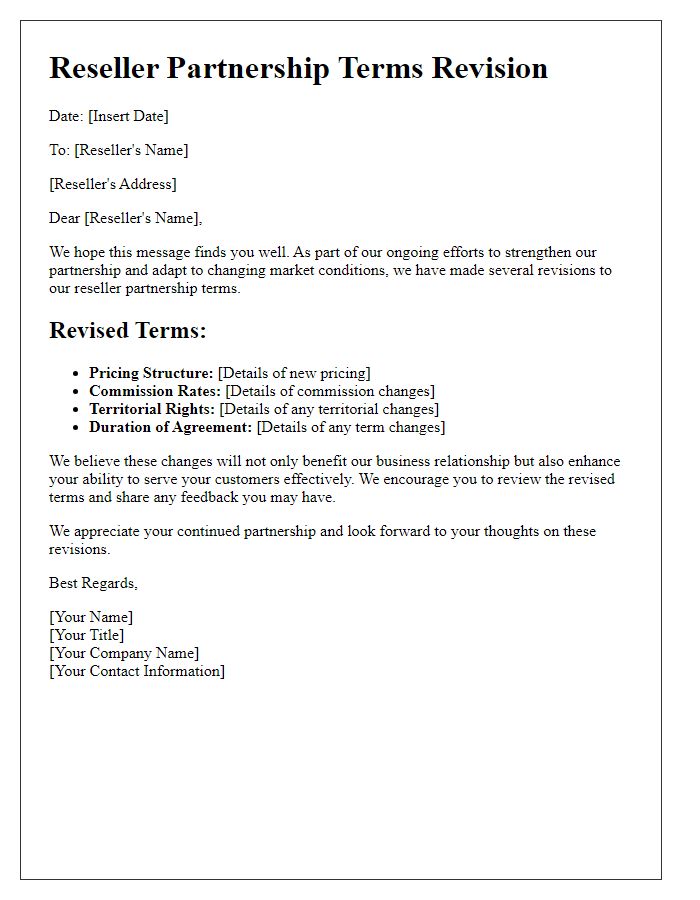
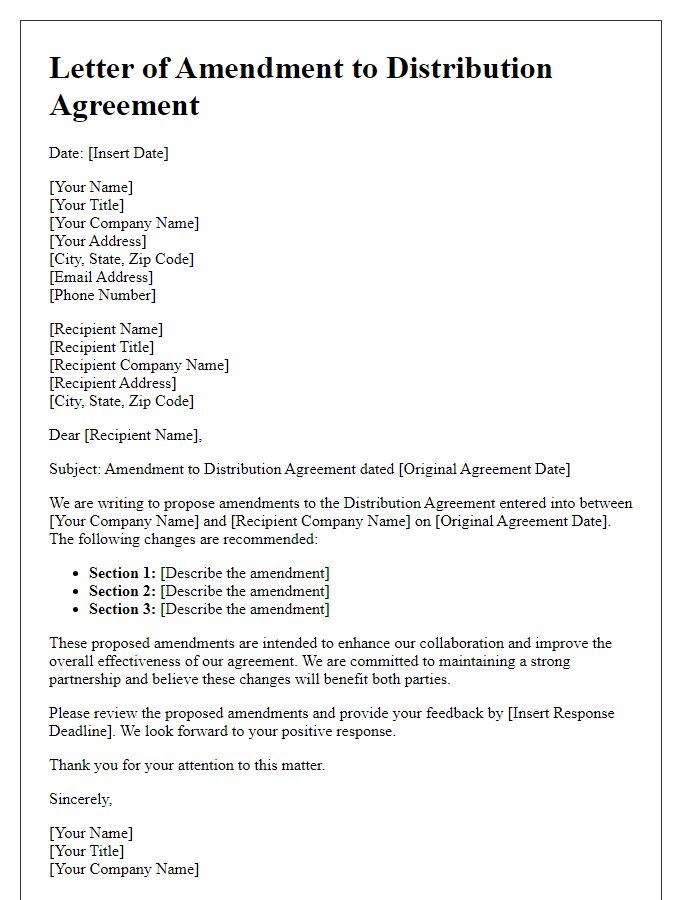
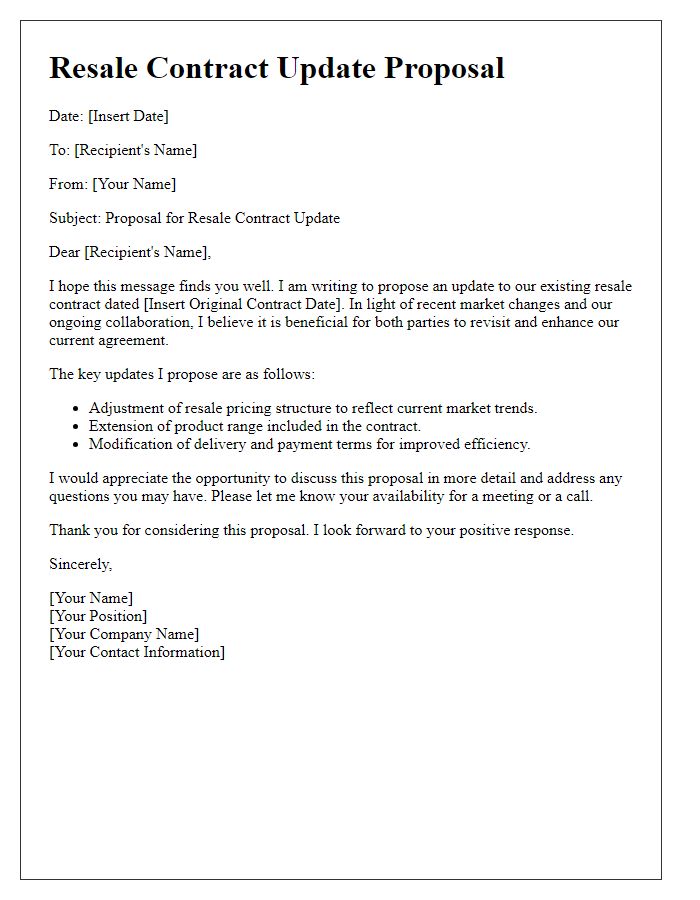
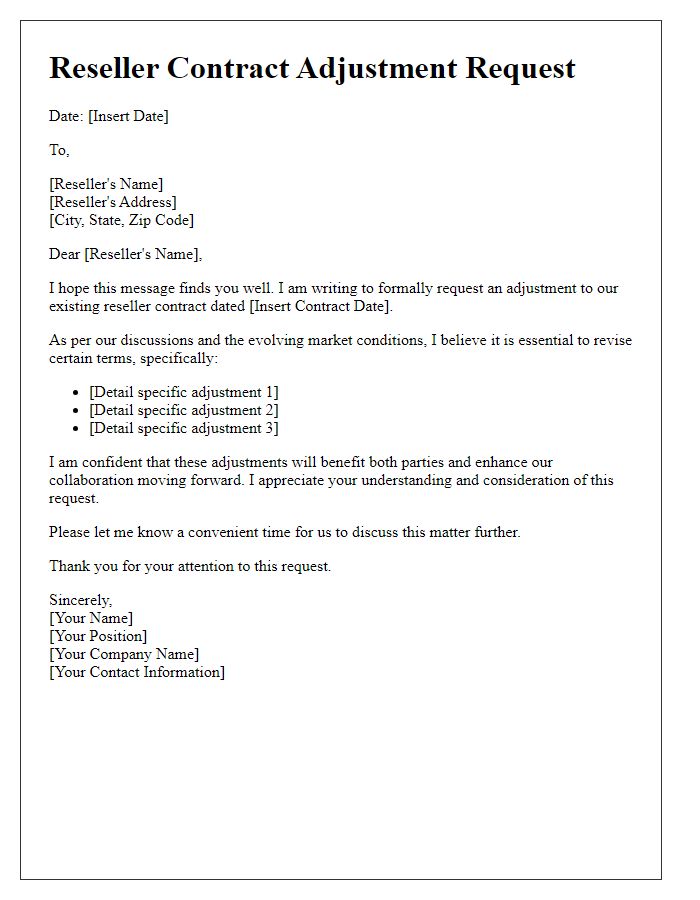
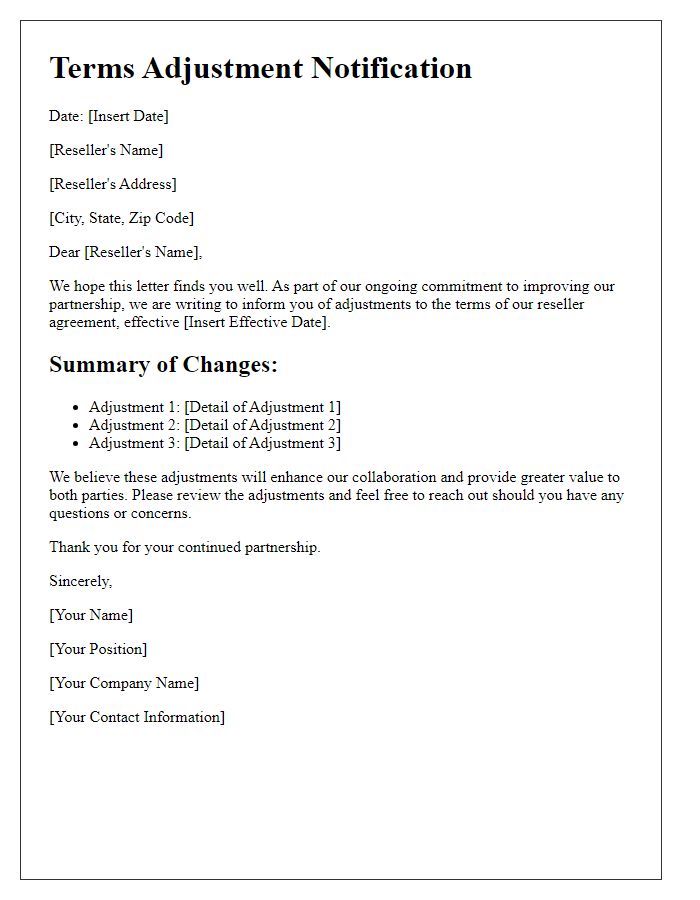
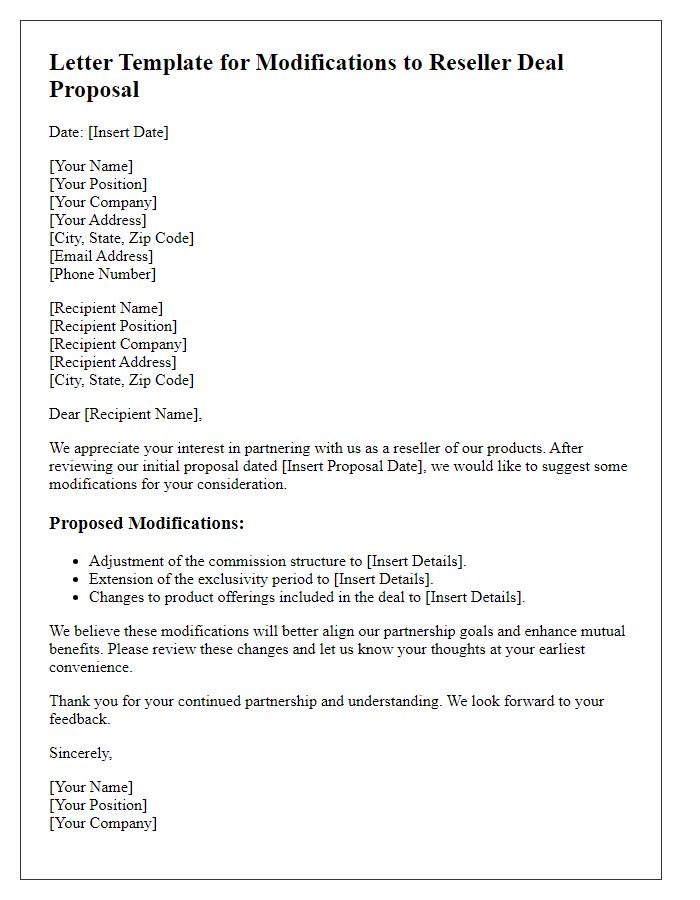
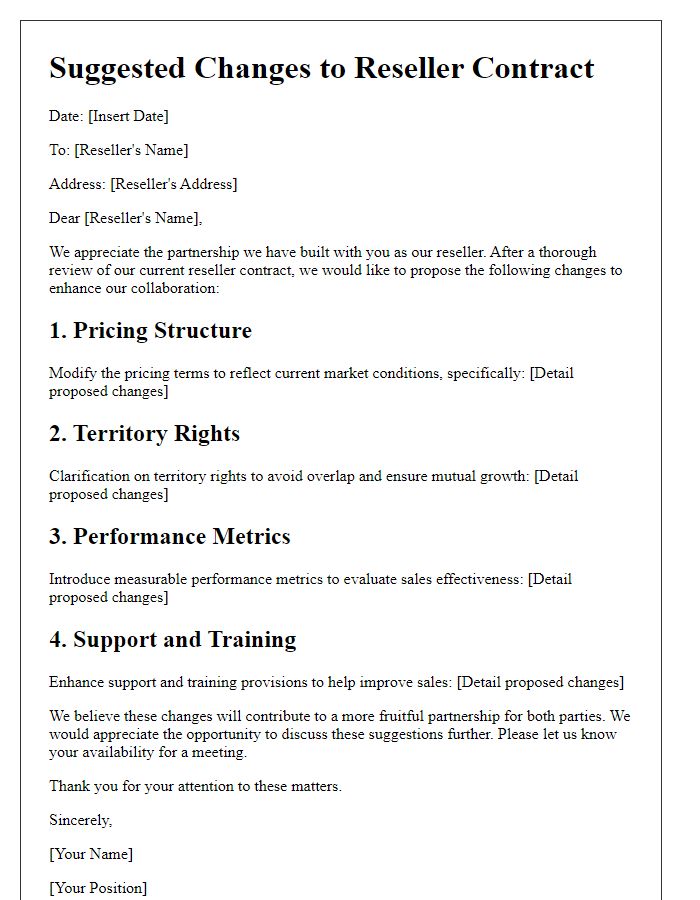


Comments